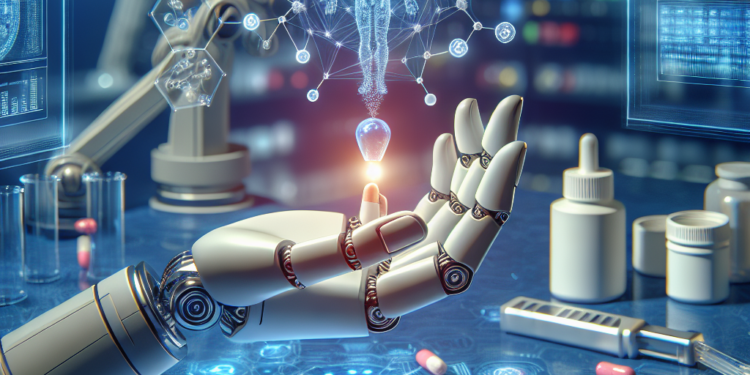Artificial intelligence (AI) has been making waves in various industries, and the healthcare sector is no exception. One area where AI is revolutionizing healthcare is in drug delivery systems. By leveraging the power of AI, researchers and healthcare providers are able to develop more efficient and precise drug delivery systems that can improve patient outcomes and reduce healthcare costs.
Drug delivery systems refer to the methods and technologies used to administer drugs to patients. Traditional drug delivery systems can be inefficient and often lead to suboptimal outcomes. For example, oral medications may not be effectively absorbed by the body, leading to decreased effectiveness. In contrast, AI-driven drug delivery systems can tailor drug administration to individual patient needs, resulting in improved efficacy and reduced side effects.
One of the key ways in which AI is transforming drug delivery systems is through personalized medicine. By analyzing a patient’s genetic makeup, medical history, and other relevant data, AI algorithms can predict how an individual will respond to a particular drug. This information can then be used to develop personalized drug delivery systems that are tailored to each patient’s unique needs.
For example, AI can help determine the optimal dosage of a drug for a particular patient based on their specific genetic profile. This personalized approach to drug delivery can help increase the effectiveness of treatments while reducing the risk of adverse reactions.
In addition to personalized medicine, AI is also being used to develop more efficient drug delivery systems. For example, researchers are using AI algorithms to optimize the design of drug delivery devices, such as inhalers and pumps. By analyzing data on drug properties, patient physiology, and other factors, AI can help researchers design devices that deliver drugs more effectively and with greater precision.
AI is also being used to improve the targeting of drug delivery systems. For example, researchers are developing AI algorithms that can predict the optimal route of administration for a particular drug based on its properties and the patient’s condition. By delivering drugs directly to the site of action, researchers can increase the efficacy of treatments while minimizing side effects.
Another area where AI is driving innovation in drug delivery systems is in the development of smart drug delivery devices. These devices use AI algorithms to monitor a patient’s condition in real-time and adjust drug dosages accordingly. For example, a smart insulin pump can continuously monitor a patient’s blood sugar levels and deliver insulin as needed to maintain optimal glucose levels.
The use of AI-driven drug delivery systems is also helping to improve drug adherence among patients. By analyzing data on patient behavior and preferences, AI algorithms can help healthcare providers develop strategies to encourage patients to adhere to their prescribed medication regimens. This can lead to better treatment outcomes and reduced healthcare costs.
In conclusion, AI-driven innovations in drug delivery systems are transforming the way drugs are administered to patients. By leveraging the power of AI, researchers and healthcare providers are developing personalized, efficient, and precise drug delivery systems that can improve patient outcomes and reduce healthcare costs. As AI technology continues to advance, we can expect to see even more groundbreaking developments in this exciting field.













